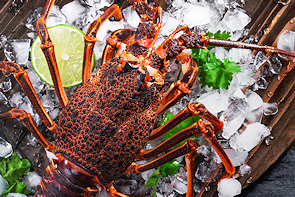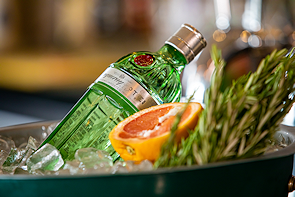Cape Town is one of the most beloved cities on the African continent, rich with adventure, natural beauty, and vibrant cultures. The city is the top vacation destination in South Africa and typically features as part of the safari, tour, or honeymoon itineraries offered by African Sky. Those who travel to Cape Town are rarely disappointed.
Need Advice?The city and its surrounding region offer a variety of attractions. These include sites of natural beauty, historical significance, and various entertainment venues.
Table Mountain is one of the most iconic natural features on the continent. The massif also comprises Lion's Head and Devil's Peak. Visitors typically journey to the top of the storied mountain via rotating cable car. More adventurous spirits can choose from several hiking routes to the top, the most direct being Platteklip Gorge.
The Kirstenbosch Botanical Gardens flower across 528 hectares of Table Mountain's eastern flanks, conserving five of South Africa's unique biomes. Highlights of a visit to the gardens include seeing spectacular proteas – the country's national flower – and the elevated perspective from the Boomslang Tree Canopy Walkway.
Cape Point is the extreme southwestern tip of the African continent - located in the Cape of Good Hope Nature Reserve. The reserve is home to fascinating fauna and flora and offers spectacular ocean and mountain views. A trip to Cape Point usually includes visiting Boulders Beach en route.
The historic Victoria & Alfred Waterfront in Table Bay Harbor comprises 123 hectares of fine hotels, world-class restaurants, numerous designer stores, craft markets, beer breweries, and attractions like the Two Oceans Aquarium. Various vessels depart from the waterfront for leisurely cruises, including the Robben Island Ferry.
The Cape Winelands is some 40 minutes drive from the city. The most significant towns in the beguiling Boland region are Franschhoek, Stellenbosch, and Paarl, each offering its unique selection of award-winning wines and historical intrigue. The Winelands are replete with striking natural scenery and gastronomic delights.
Boulders Beach lies on the Cape Peninsula. It is home to a colony of African Penguins. The beach derives its name from the granite boulders which characterize this part of the coastline. These offer excellent vantage points from which to enjoy the antics of the penguin colony. Penguins occur only in the Southern Hemisphere.
Its iconic setting, the mix of cultures, diverse attractions, and activities make Cape Town a desirable vacation destination.
Cape Town is South Africa's oldest city. It is a cosmopolitan hub with something to complement every visitor's desires to its shores.
The city of Cape Town and its surrounding areas offer a multitude of different activities.
Your transportation between Cape Town's various attractions will always be in a comfortable, private, air-conditioned vehicle operated by your reliable African Sky guide. All vehicles are serviced regularly, adhere to all local safety requirements, and are legally licensed to carry passengers.
The vehicle size typically depends on the size of your traveling party. In periods of high demand (particularly over the festive season), we often hire vehicles from a reputable rental agency that adheres to the same high standards. Your safety and comfort while enjoying a Vacation in Cape Town are paramount to us.
Cape Town is known to be the culinary jewel in South Africa, with a mix of local, international, and innovative dishes served.




Cape Town International Airport welcomes flights from all around the world every day. Domestically, flights between Johannesburg and Cape Town operate on an almost hourly basis, with more infrequent flights between Cape Town and the Garden Route and once daily flights between Cape Town and airports near or in Kruger. The only time that you would travel to Cape Town by road with African Sky is if you are visiting the Garden Route or Port Elizabeth prior to Cape Town. The distance between Cape Town and Johannesburg is a vast one, and we recommend flying to ensure that your limited amount of time in South Africa is well spent.
In the words of the Capetonians, Cape Town may pass through all four seasons in a single day. However, the weather is more often than not entirely pleasant, and the area provides a variety of activities to suit every condition. The summer months (December to February) are dry and average a maximum temperature of 26°C (79°F) and a minimum of 16°C (61°F). The strong South-Easter wind (nicknamed the Cape Doctor for blowing the smog away from the city) is most active during this period, infamous among Capetonians for its wicked hat thievery and sunbathing interruptions.
Cape Town is a winter rainfall region. Temperatures rarely fall below 7°C (44.6°F), with an average maximum of 18°C (64°F). However, the further inland you travel, the cooler conditions will get. Though initially called the Cape of Storms, Cape Town's misty drizzles can hardly rival the pyrotechnic thunderstorms that occur in the northern regions of South Africa. The light showers can be wonderful and pleasant, allowing for various outdoor activities (if you do not mind a bit of dampness). Rainfall in the winter (June to August) averages between 70 - 90mm.
The passages of spring and autumn are hardly noticed in the Cape, serving more as mild appendages to the other seasons. Thus, depending on your desired itinerary, any time is an excellent time to visit the Mother City. The cold Benguela influences the Cape's waters. This northward flowing current maintains temperatures of around 13°C on the Atlantic seaboard side of the peninsula and 17°C in the warmer False Bay.
Cape Town is not in a malaria area. The only medical considerations are to ensure that you are up-to-date with all your routine vaccinations. Tap water is of a very high standard in metro areas but not in rural areas. If you suffer from allergies, note that late August to early October is flower season, so pack the necessary medication if you visit during this period.
As is typically the case in most major cities, petty crime is common. Be alert when exploring, avoid unsavory areas, or wander around alone at night. When in the care of African Sky, you will never venture into areas that pose obvious potential threats. Our guides are vigilant, and we pride ourselves on our unblemished safety record.
The earliest mention of the Cape is in the accounts of Bartolomeu Diaz. In 1488, Diaz became the first European seafarer to circumnavigate the Southernmost tip of Africa; Cabo das Agulhas (Cape Agulhas), the dividing line between the Indian and Atlantic Oceans. Preceding his coast past Agulhas, Diaz encountered a treacherous bay he christened, Cabo das Tormentas (Cape of Storms). King John II of Portugal, though having never set foot in this freshly discovered Cape, was more enthusiastic about the possibility of opening a new route to the East. He renamed it Cabo da Boa Esperanza - The Cape of Good Hope- a name the headland of the peninsula retains to this day.
The Dutch East India Company commissioned the first settlers in the Cape Colony to operate a supply depot. This halfway house would serve to restock and repair ships that passed the area. On 6th April 1652, a group of 90 Calvinists, headed by Jan van Riebeeck, arrived at the shores of the Cape in a trio of ships; the Reijger, the Goede Hoop, and the Drommedaris. The overloaded Oliphant and the Walvisch arrived sometime later after suffering 130 burials at sea. After eventually erecting a clay and timber fort and purchasing arable land from the indigenous Khoi-Khoi, Cape Town as we know it today began to take form.
After years of on-and-off British occupation during the French Revolutionary and Napoleonic wars, the Cape was relinquished to the British in the Anglo-Dutch Treaty of 1814. Cape Town became the capital of the now British Cape Colony, ceding extensive expansion during the 1800s. Today, Cape Town is the seat of the National Parliament and a world-class international destination.
Cape Town has an activity (or inactivity) to suit every vacationer. The city hosts many local and international designer stores, esteemed restaurants, and great drinking holes. The historic Victoria & Alfred Waterfront is a hub that entertains everything from a German-style Brauhaus that brews its beer, revered seafood utopias, and the biggest names in fashion to the Two Oceans Aquarium and sunrise or sunset cruises from Table Bay Harbor.
For history buffs or travelers seeking a more cultural experience, the city is rife with museums and tokens of bygone years. A pentagonal fortress built in the 17th century, the Castle of Good Hope is the oldest standing structure in colonial South Africa. Attractions in the historic building include - cannon demonstrations, tours of the old cells and living quarters, and artwork and artifacts on display in the museum spaces.
One of the most famous historical attractions is the infamous Robben Island. Several political prisoners were confined during the struggle, including South Africa's first democratically-elected president, Nelson Mandela. With a former political prisoner as a guide, gain insight into the 27 years Mandela spent in a cell, along with stories of other freedom fighters and the island's history as a leper colony. Ferries depart to this UNESCO World Heritage Site three times a day from beneath the clock tower at the V&A Waterfront.
No wildlife encounter comes close to diving with the formidable great white shark for the adventurous type. False Bay is famous for predatory breaches, one of the few places in the world where you can be bowled over by the spectacle of a 5m long, 1000kg strong sea monster airborne in its pursuit of a Cape fur seal. For an overland nature experience, take Noordhoek's wild stretch of beach on horseback or hike the rugged trails of Cape Point among ostriches, Cape zebra, red hartebeest, and baboons.
If ascending to the top of Table Mountain via foot and rope or the established cableway (a mere 5-minute trip in a 65-passenger rotating car that offers scenic views of the city and beyond) fails to satisfy your inner adventurer, do not forget that the sky is your limit. Explore the peninsula from the fringe of the heavens - in a paraglider or hang glider - the views are some of the most exceptional in Africa. Table Mountain National Park is also ideal for abseiling, mountain biking, caving, and rock climbing.
The South-Easter wind also makes Cape Town a prime kite surfing destination. On a windy day, hundreds of kite surfers can be spotted bouncing on the swells of Bloubergstrand. Muizenberg, stretching south from the crest of False Bay, is a surfing hotspot, while the best swimming beaches include Llandudno and (clothing-optional) Sandy Bay on the Atlantic seaboard side. St James, Kalk Bay, and Fish Hoek in False Bay have fractionally warmer tidal pools ideal for swimming. Boulders Beach is a popular swimming hole for nature lovers - scattered with striking granite boulders; this protected area has become a settlement for a large colony of African penguins. For a small fee, visitors can sunbathe and float in the surf with these charming birds.